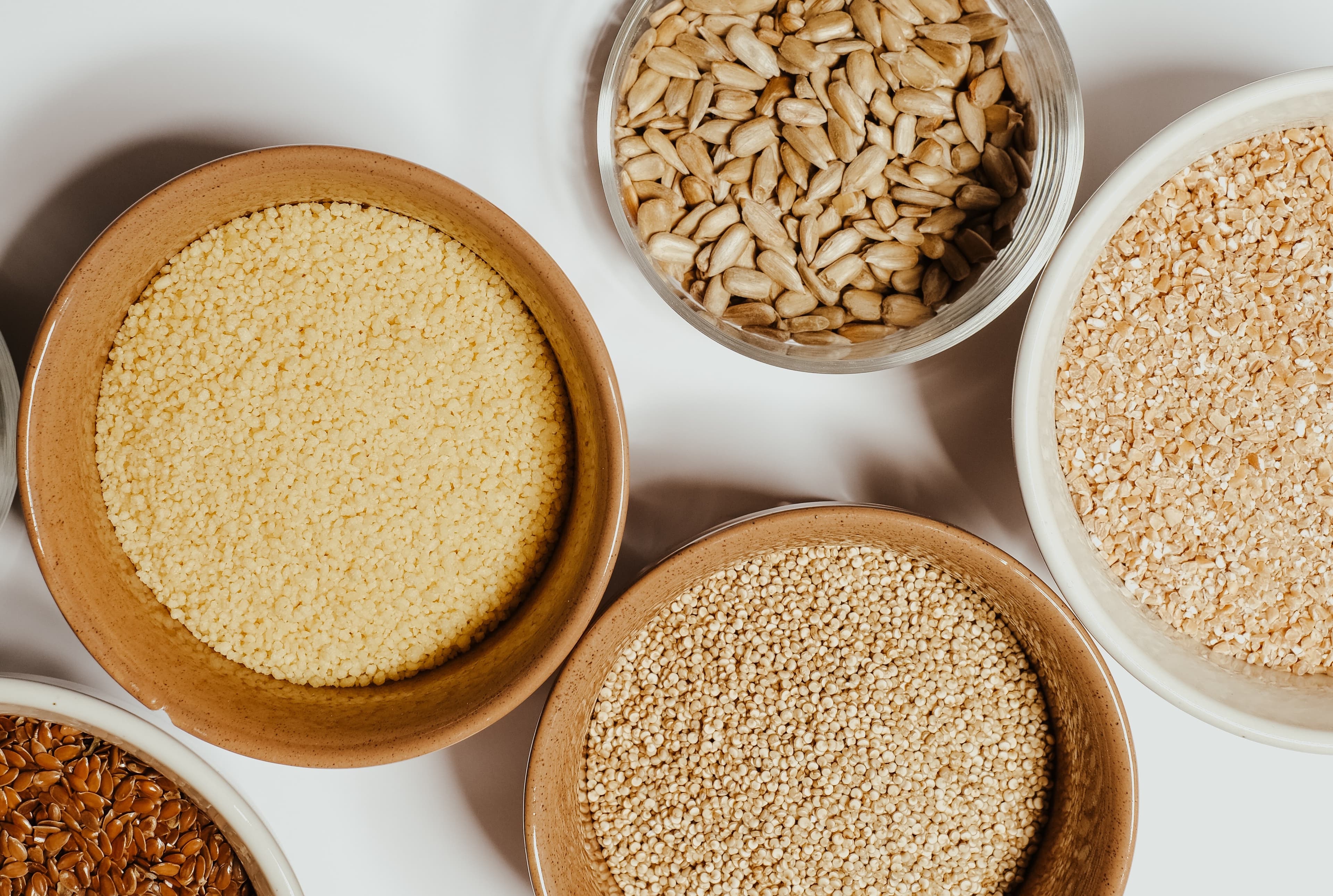How to Improve Your Digestive Health: A Step-By-Step Guide

Written by Chad Birt on Thu Aug 17 2023.

Do you regularly experience stomach problems, like boating, constipation, or diarrhea? If so, it’s important to get curious about your digestive health and identify the underlying problem.
Though everyone has these issues occasionally, if they continue or worsen, it could indicate a serious health issue. Fortunately, there’s plenty you can do to improve your digestive health.
Below, we make several easy recommendations to help you feel your best.
Why Is Digestive Health Important?
Good digestive health is essential if you want to live a long and healthy life.
“Digestion influences nutrient absorption, immune function, and overall well-being,” says Barbara Kovalenko, RD, a registered dietitian and nutrition consultant at Lasta. “A well-functioning digestive system ensures the nutrients you consume from food are effectively absorbed and used by your body to support various physiological processes.”
You can’t prevent digestive problems altogether, but there’s plenty you can do to support your stomach, gallbladder, and colon.
What You’ll Need:
All you need to improve your digestive health is a good attitude and a willingness to change your diet. You don’t have to stop eating and drinking your favorite foods and snacks, but you do need to make healthier decisions. This can be challenging if you're used to eating lots of carbs and sugar, but with support from your family and healthcare team, it’s possible.
Steps to Improve Your Digestive Health
Step 1: Visit Your Doctor
If you have symptoms like bloating, gas, diarrhea, or heartburn, the first step to feeling better is determining the underlying cause.
“Often, these symptoms indicate issues like irritable bowel syndrome (IBS), gastroesophageal reflux disease (GERD), or other digestive disorders,” Kovalenko explains.
Because these conditions can be exacerbated by lifestyle factors, medications, and diet, getting a proper diagnosis is essential. Your doctor can order tests like blood work, an endoscopy, or a colonoscopy to identify the source.
Step 2: Stay Hydrated
How much water do you drink each day? If it’s less than the recommended daily amount of 15.5 cups for men and 11.5 cups for women, you’re more likely to have digestive problems.
When you’re hydrated, it’s much easier for your digestive system to break down food and get nutrients from it. Drinking water also helps your stomach produce more acid and raises your pH which prevents heartburn.
Carewell Tip
You don’t need to guzzle water all day long. But you should try and drink water throughout the day. Shoot for one eight-ounce glass of water every hour that you’re awake.
Step 3: Avoid Processed Foods
Processed foods like cookies, crackers, and chips have a lot of flavor and provide a quick burst of energy, but they’re hard to digest. They also have little nutritional value and often make stomach problems worse.
Try to replace these foods with a healthier and more balanced diet. Kavalenko recommends eating fruits, vegetables, whole grains, lean proteins, and healthy fats. “Eating a healthy diet rich in fiber promotes regularity and helps to maintain a healthy gut microbiome,” she explains.
Step 4: Exercise Several Times a Week
Many people think that exercise is only good for their heart and metabolism, but it supports digestive health too.
When you regularly exercise, more blood flows to your stomach muscles and digestive tract, resulting in peristalsis. Peristalsis helps food move through your intestines so that they can better absorb nutrients into your bloodstream.
Step 5: Keep Stress Under Control
Up to 76% of American adults report feeling stressed out. This is understandable. Modern life is busy and we’re constantly on the go. But if you don’t take steps to manage your stress, your digestive health can suffer.
For some people, stress speeds up digestion, resulting in diarrhea; for others, it slows down digestion, causing bloating and constipation.
Thankfully, you can reduce stress by doing some of the things we’ve already mentioned, like exercising regularly and eating a healthy diet. You might also want to consider adding meditation, deep breathing, or yoga to your weekly routine. These activities are designed to help you focus on the present and stay calm.
Step 6: Drink Less Alcohol
Drinking a glass of wine at the end of the day might seem like a good way to relax, but if you have a sensitive stomach, any type of alcohol can make your symptoms worse.
Alcohol has lots of sugar and is loaded with empty calories. Try replacing adult beverages, like beer or liquor, with sparkling water, lemonade, or iced tea. You don’t have to stop drinking alcohol altogether, but cutting back can help support your digestive health.
Step 7: Take a Probiotic or Prebiotic Supplement
“Probiotics benefit digestive health by introducing beneficial live bacteria into your gut which helps maintain a balanced gut microbiome,” Kavelenko says. “They can aid in digestion, reduce symptoms of bloating and gas, and support immune function in the gut.”
Prebiotics, on the other hand, are plant fibers that feed the good bacteria in your gut. By taking a prebiotic you can increase the amount of these bacteria, and in turn, your digestive health.
If you don’t want to take a supplement, try adding probiotic foods to your diet. These include fermented foods, like kimchi, pickles, kombucha, and plain Greek yogurt.
Step 8: Keep a Food Journal
Keeping a food journal can help you identify certain foods or drinks that make your digestive symptoms worse.
“If you feel bloated after eating a meal, reduce or eliminate those items from your diet and see if it helps,” says Bryan Davis, an NASM Certified Nutrition Coach. “A food journal isn’t a quick fix, as It may take some time to identify what’s causing the issues.”
Still, it’s worth the effort. Be patient and keep good records. After a month or two, you can read through your journal and get a better idea of which foods are responsible.
Step 9: Eat More Fiber
If you suffer from constipation, eating more fiber may be the key to success. Fiber provides fuel for the cells in your colon and makes your bowel movements bulkier and easier to pass.
Adult men should try and eat 30-38 grams of fiber per day, while women should try to eat 21 to 25 grams of fiber per day. Don’t exceed these recommendations, as too much fiber can cause bloating, gas, and other digestive issues.
Meeting the recommended fiber intake isn’t always easy, which is why fiber supplements can be beneficial.
How to Improve Your Digestive Health - Takeaways
“Prioritizing digestive health is essential for overall well-being,” Kavelenko says. “By adopting a balanced diet, staying active, managing stress, and considering probiotic supplements when needed, you can enhance your digestive health and improve your quality of life.”
Because everyone has different symptoms and needs, don’t feel like you have to do everything mentioned here. Select the things that help you feel good and don’t be afraid to experiment. Even minor changes can go a long way toward improved digestive health.
prioritizing digestive health is essential for overall well-being. By adopting a balanced diet, staying active, managing stress, and considering probiotic supplements when needed, individuals can enhance their digestive health and improve their quality of life.
How to Improve Your Digestive Health - Commonly Asked Questions
1) What are the signs of poor digestive health?
Common signs of poor digestive health include:
Bloating
Gas
Diarrhea
Constipation
Heartburn
Abdominal discomfort
Everyone has these symptoms from time to time, but if they occur regularly or affect your quality of life, don’t wait to make an appointment with your doctor.
2) Why does digestive health tend to worsen with age?
People 65 and older are more likely to have digestive problems, due to changes caused by the aging process.
“As we get older, our bodies stop producing certain digestive enzymes and food can also move through the intestines slower” Kavelenko explains. “These changes can lead to issues with digestion and nutrient absorption, which is why it’s so important to take care of your gut throughout your life.”
3) How often should I get a colonoscopy?
After you turn 50, it’s recommended you undergo a colonoscopy once every 10 years. If you have a family history of colon cancer or other digestive health problems, your doctor might recommend one every five years instead.
Have Questions About Your Digestive Health?
We’re here to help! Our friendly and supportive Care Specialists regularly work with family caregivers and their loved ones to answer questions, make product recommendations, and support those with digestive issues.
Call (800) 696-CARE or send an email to support@carewell.com. We’re available and standing by.
Other Articles You May Like

How To Eat More Fiber
Dietary fiber is one of the most important carbohydrates. It plays an essential role in healthy digestion and reduces the risk of chronic health problems like high cholesterol, type 2 diabetes, heart disease, and certain cancers.
Read More >
How to Read Nutrition Labels
All packaged and canned foods come with nutrition facts labels. But if you aren’t a dietitian, trying to interpret what they mean can feel like trying to read hieroglyphics.
Read More >
Chad Birt is a freelance medical writer who resides in Astoria, Oregon. When he isn't behind a keyboard, you can find him hiking, camping, or birdwatching with his wife Ella and their two dogs, Diane and Thoreau.